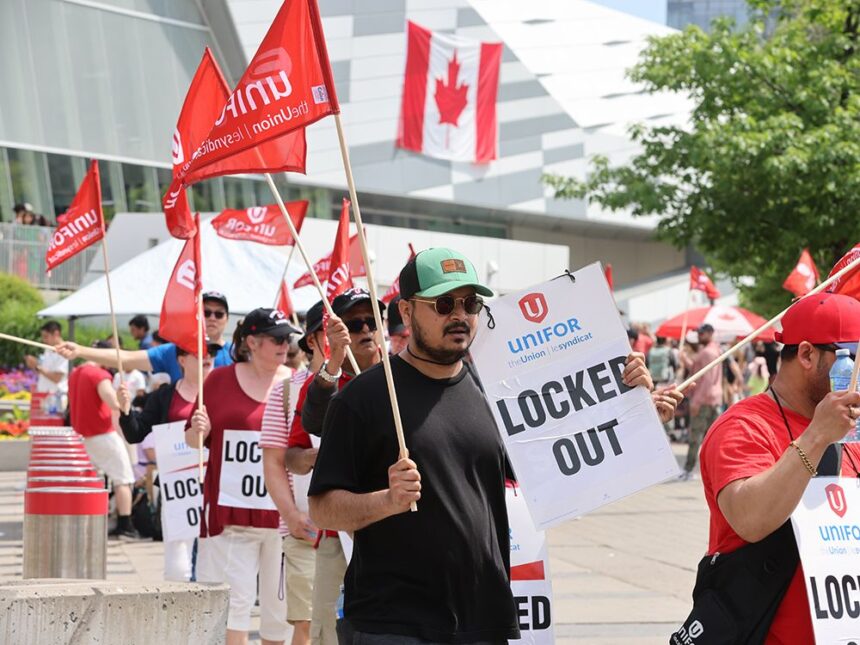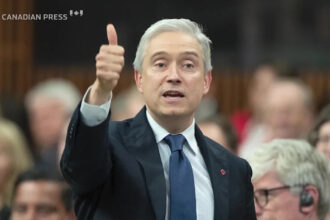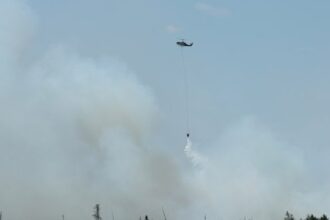In an unprecedented turn of events, Canada’s iconic CN Tower stands at the center of labor tensions as management locked out approximately 300 workers just hours before the Canada Day long weekend. The dispute between Unifor Local 7378 and the Canada Lands Company, which manages the national landmark, has resulted in significant operational disruptions during what would typically be one of the busiest tourism periods of the year.
The lockout began at 12:01 a.m. Friday after negotiations reached an impasse, with both sides unable to agree on wage increases and scheduling flexibility. Unifor representatives claim management had been preparing for this outcome, having trained replacement workers weeks in advance—a move the union has described as “deliberately provocative.”
“Management has chosen to lock out these dedicated workers during one of the most important weekends of the year, demonstrating a troubling disregard for both employees and visitors,” said Lana Payne, Unifor National President. “These workers help generate millions in revenue for a Canadian landmark, yet management refuses to provide fair compensation that keeps pace with inflation.”
The Canada Lands Company has implemented contingency plans to maintain limited operations, but several attractions remain closed, including the popular EdgeWalk experience and the 360 Restaurant. The observation deck remains accessible, though with reduced capacity and services.
Tourism experts estimate the timing could not be worse, as the Canada Day weekend typically draws tens of thousands of visitors to the 553-meter structure. According to Canada News industry reports, the CN Tower welcomes approximately 1.5 million visitors annually, with the summer months representing peak season.
Economic analysts tracking the dispute for CO24 Business note that beyond immediate revenue losses, the lockout raises questions about labor relations at Canada’s crown corporations and their approach to essential tourism infrastructure.
“This labor dispute highlights the growing tension between operational profitability and fair labor practices across Canada’s tourism sector,” said Dr. Eleanor Jameson, labor economist at the University of Toronto. “With inflation outpacing wage growth, we’re seeing similar conflicts emerge at various cultural and tourism institutions nationwide.”
Unifor members have established picket lines outside the tower, with support from other labor organizations across Toronto. The union is seeking a wage increase that accounts for Canada’s elevated inflation rate, which reached 2.9% in April, along with improved scheduling provisions and benefits.
The lockout comes amid a broader pattern of labor activism across Canada, with workers in various sectors pushing back against what they perceive as inadequate compensation during a period of rising living costs. According to CO24 Politics reporting, several federal and provincial politicians have commented on the dispute, with some calling for government intervention to ensure the national landmark remains fully operational during the holiday celebrations.
For tourists who had planned visits, the experience has been disappointing. “We came all the way from Vancouver specifically to visit the tower on Canada Day,” said Michelle Tremblay, who arrived with her family Friday morning. “Now we can only access part of it, and the atmosphere feels tense rather than celebratory.”
As Canada celebrates its 157th birthday, this labor dispute raises important questions about how we value the workers who maintain our national landmarks. In an era of rising costs and economic uncertainty, will iconic Canadian institutions prioritize their workforce, or will short-term financial considerations continue to drive decision-making at the expense of labor relations?










